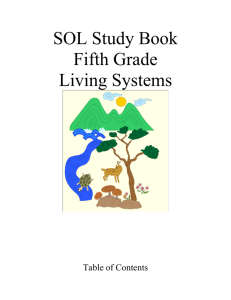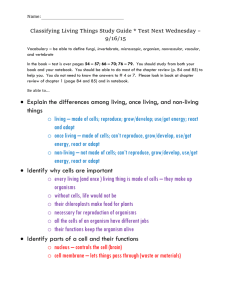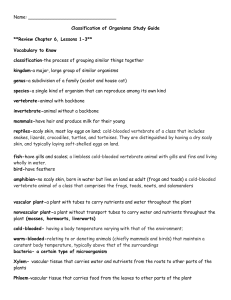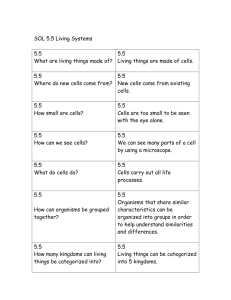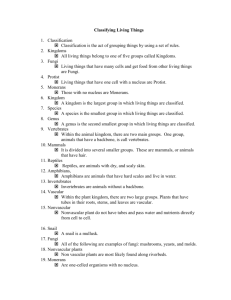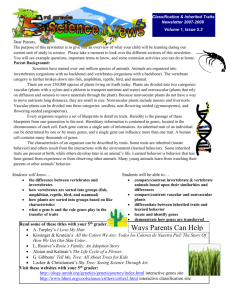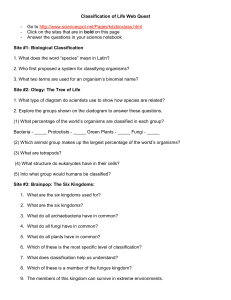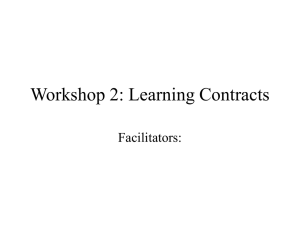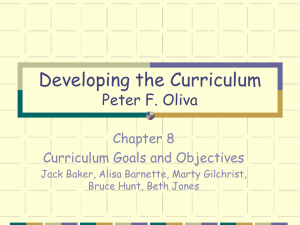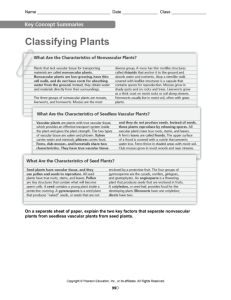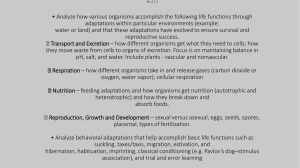Science SOL 5.5 - Augusta County Public Schools
advertisement
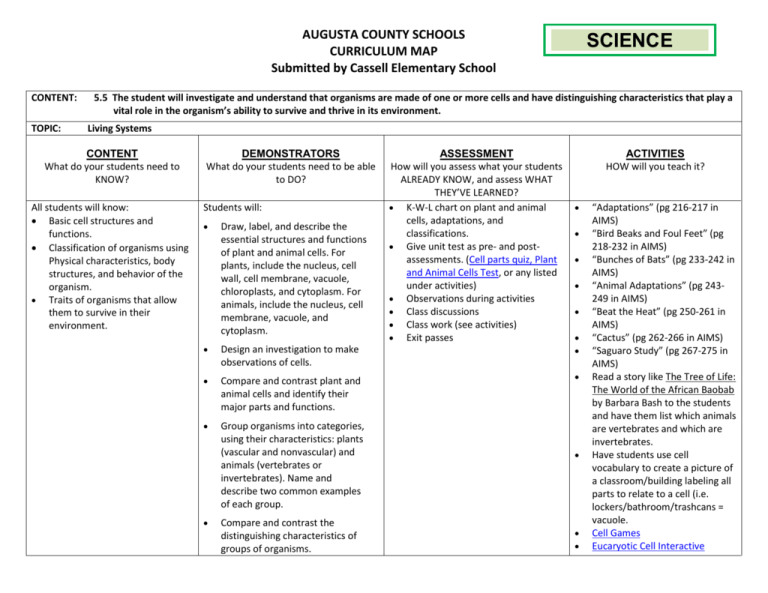
AUGUSTA COUNTY SCHOOLS CURRICULUM MAP Submitted by Cassell Elementary School CONTENT: TOPIC: SCIENCE 5.5 The student will investigate and understand that organisms are made of one or more cells and have distinguishing characteristics that play a vital role in the organism’s ability to survive and thrive in its environment. Living Systems CONTENT What do your students need to KNOW? All students will know: Basic cell structures and functions. Classification of organisms using Physical characteristics, body structures, and behavior of the organism. Traits of organisms that allow them to survive in their environment. DEMONSTRATORS What do your students need to be able to DO? Students will: Draw, label, and describe the essential structures and functions of plant and animal cells. For plants, include the nucleus, cell wall, cell membrane, vacuole, chloroplasts, and cytoplasm. For animals, include the nucleus, cell membrane, vacuole, and cytoplasm. Design an investigation to make observations of cells. Compare and contrast plant and animal cells and identify their major parts and functions. Group organisms into categories, using their characteristics: plants (vascular and nonvascular) and animals (vertebrates or invertebrates). Name and describe two common examples of each group. Compare and contrast the distinguishing characteristics of groups of organisms. ASSESSMENT How will you assess what your students ALREADY KNOW, and assess WHAT THEY’VE LEARNED? K-W-L chart on plant and animal cells, adaptations, and classifications. Give unit test as pre- and postassessments. (Cell parts quiz, Plant and Animal Cells Test, or any listed under activities) Observations during activities Class discussions Class work (see activities) Exit passes ACTIVITIES HOW will you teach it? “Adaptations” (pg 216-217 in AIMS) “Bird Beaks and Foul Feet” (pg 218-232 in AIMS) “Bunches of Bats” (pg 233-242 in AIMS) “Animal Adaptations” (pg 243249 in AIMS) “Beat the Heat” (pg 250-261 in AIMS) “Cactus” (pg 262-266 in AIMS) “Saguaro Study” (pg 267-275 in AIMS) Read a story like The Tree of Life: The World of the African Baobab by Barbara Bash to the students and have them list which animals are vertebrates and which are invertebrates. Have students use cell vocabulary to create a picture of a classroom/building labeling all parts to relate to a cell (i.e. lockers/bathroom/trashcans = vacuole. Cell Games Eucaryotic Cell Interactive Identify and explain traits of organisms that allow them to survive in their environment. DIFFERENTIATION How will you meet the needs of all students? RESOURCES Animation Interactive Cell Structure “Backbone” song and lyrics Interactive living systems sort Interactive kingdom sort Online vascular tissue tutorial Cell Inspector tutorial Games, Lessons, Tests/Quizzes, PowerPoint presentations 5 E’s Lesson Components Plant Cell Parts and Functions Create plant and animal cell models-see resources. Animal Migration Animal and Plant Cells SMART board lesson Camouflaged Creatures Cell Theory lesson plan Cell Riddles Hibernation Vertebrate/Invertebrate cut and paste Plant Cell color page Structures and Functions of Plant and Animal Cells Vertebrate classifications Animal Sort Life Processes and Cell Parts Vascular and Nonvascular Plants Vertebrate Classes TEACHER NOTES: See activities for appropriate levels for ELL and below grade level students (Living systems adaptive notes, Living systems bingo, 5 kingdoms adaptive notes, 5 kingdoms adaptive test). Enrichment- students will have the opportunity to create and conduct their own activity/lab on kingdoms, vascular/nonvascular plants, vertebrates/ invertebrates and cell parts, to demonstrate knowledge. Use of leveled nonfiction science readers. McGraw-Hill Science Textbook Scott Foresman Science leveled readers ©2007AIMS Education Foundation Core Curriculum/Virginia County created MIND notes 5.5 Rockingham County Schools Teacher created materials by Michael Stilwell www.Teacherspayteachers.com www.Superteacherworksheets.com Plant and Animal Cell lessons and websites Cells for Kids- lessons, games, activities
